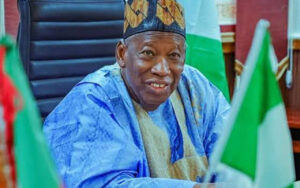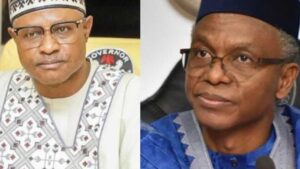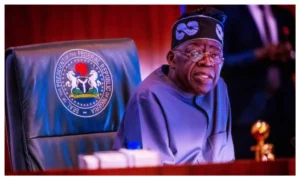
Once upon a protest, Nigerian youths shouted “Soro Soke” — a bold call to speak up, demand change, and stop being sidelined. That phrase, born during the #EndSARS movement in 2020, became a rallying cry. It signalled a generation tired of being ignored. But four years later, the question remains: beyond the chants, who among the youths is truly winning in politics — and who is losing?
Let’s be honest. The political field in Nigeria is still heavily dominated by the old guard. Names from the past are still holding on to the present. The 2023 general elections were a big test for the so-called Soro Soke generation. Many young people registered. Many even joined political parties. Some ran for office. But how many actually won?
Take Gbadebo Rhodes-Vivour of the Labour Party in Lagos. Young, articulate, and widely followed by young voters. He contested for governor. He made headlines. He trended. But he didn’t win. Datti Baba-Ahmed, vice-presidential candidate of the same party, also resonated with the youth — but again, the final result told a different story.
So, who is winning?
Small victories exist. Young legislators like Rukayat Shittu in Kwara State — a 26-year-old former student union leader — made it to the State House of Assembly. In Plateau and Nasarawa states, a few young politicians broke through the barriers. These are bright sparks. But for a country where over 60% of the population is under 30, it’s still not enough.
Why are the wins so few?
One word: structure. Nigeria’s political system is tough for outsiders — especially young ones. Money politics, godfatherism, and party loyalty often shut the door on fresh voices. Most young people simply cannot afford to compete. They lack the millions needed for campaign logistics. Worse still, many youth-led movements burn out quickly after elections. Passion is high, but structure is weak.
Another problem? Youth disunity.
Nigerian youths are not a single block. They are Igbo, Hausa, Yoruba. Christian, Muslim, traditionalist. Activist, entertainer, entrepreneur. When it comes to elections, these divisions come out. Instead of rallying behind one or two strong candidates, votes are scattered. The energy that once drove #EndSARS is now fragmented across clashing opinions and social media bants.
Yet, not all hope is lost.
Youth involvement is growing — slowly, but steadily. Civic groups like Yiaga Africa and NotTooYoungToRun have played big roles in educating and supporting young aspirants. Social media also continues to serve as a powerful tool for political awareness. Even INEC’s data shows that youths form the largest bloc of registered voters. The numbers are there — they just haven’t translated into full power yet.
Still, the real question remains: are Nigerian youths truly ready to play politics beyond protest?
Protests make noise. Politics takes patience.
Winning means building structures, aligning with strong grassroots movements, learning the game, and sometimes even playing the long game. Youths must be ready to do more than tweet and trend. They must show up for ward meetings. Join parties. Influence policies. Build coalitions — not just vibes.
So, who’s winning? A few brave ones.
Who’s losing? The larger group that still watches from the sidelines, angry but inactive.
But the future is not lost. The next elections — in states, in local governments, in student unions, and even at national level — are another chance. If the Soro Soke generation wants to truly be heard, they must stop shouting from outside the gate and walk into the room where decisions are made.
Because beyond Soro Soke, real politics is not just about speaking up. It’s about showing up.
Are you a young Nigerian in politics? What’s your story — win or lose? Share in the comments below.
Editor’s Note: This editorial is part of our “Naija Political Youth Series.”
#SoroSoke #YouthInPolitics #NigeriaDecides #NotTooYoungToRun #NaijaPolitics




